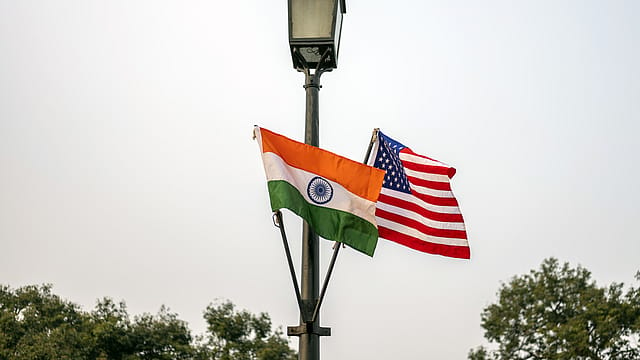Political and industry leaders condemn Trump’s additional 25% tariff hike on Indian imports
ADVERTISEMENT

Amid U.S. President Donald Trump’s signing of an executive order that imposed an additional 25% tariff on Indian goods, public figures across politics and industry have expressed condemnation of President Trump’s actions of penalising India to take measures in its national interest.
Rahul Gandhi, the leader of the Opposition in the Lok Sabha and MP from Raebareli, has dubbed the decision as an ‘emotional blackmail’, a coercive attempt to bully India into an unfair trade deal. Shashi Tharoor, the Congress MP from Thiruvananthapuram, said that there is, unfortunately, a certain double standard involved with the U.S. imposing additional tariffs on India, as the U.S. imports various goods from Russia, which include Uranium and Palladium.
Tharoor also pointed out that the U.S. has given the Chinese a 90-day reprieve, despite the Chinese importing far more Russian oil than India is. “So clearly this has not been a particularly friendly gesture from a country we thought was well disposed towards us, an administration that we thought was well disposed,” he told reporters. Tharoor also said that India ought to learn from experience and act accordingly. “I think there is certainly a likelihood that there will be some pressure within India now to impose comparable reciprocal tariffs on American exports to India. So, I think we’re going to have to start looking at other trading partners much more in these circumstances.”
Congress leader Pawan Khera also condemned the imposition of an additional 25% tariff on India. “It is pure and simple blackmail by America…We hope that no negotiation which undermines our interests takes place,” he told ANI. Shiv Sena national spokesperson Shaina NC also told ANI that India has firmly rejected Donald Trump’s tariff hike. “In fact, we have gone to the extent of saying that its energy policy is a matter of both sovereignty and necessity. And taking steps to support exporters whilst we continue to have engagement with the US through diplomatic channels has been our stand,” she added.
January 2026
Netflix, which has been in India for a decade, has successfully struck a balance between high-class premium content and pricing that attracts a range of customers. Find out how the U.S. streaming giant evolved in India, plus an exclusive interview with CEO Ted Sarandos. Also read about the Best Investments for 2026, and how rising growth and easing inflation will come in handy for finance minister Nirmala Sitharaman as she prepares Budget 2026.
The condemnation has come from the industry as well. Anand Mahindra, chairman of the Mahindra Group, took to X to aver that the ‘law of unintended consequences’ seems to be operating stealthily in the prevailing tariff war unleashed by the U.S. He called for India to seize this moment to shape a virtuous consequence for itself.
He pointed out two strong steps that should be taken: radically improve the ease of doing business and unleash the power of tourism as a foreign exchange engine. “Let the unintended consequences we create be the most intentional and transformative ones of all. We cannot fault others for putting their nations first. But we should be moved to make our nation greater than ever,” he added.
The Confederation of Indian Textile Industry (CITI) has expressed deep concern over the potential adverse impact of the additional 25% tariff announced by U.S. President Donald Trump on goods exports from India on August 6. Along with an earlier announced 25% tariff, an effective 50% tariff is seen as a major setback for Indian textile and apparel exporters, CITI says. The U.S. is India’s largest market for textile and apparel exports.
